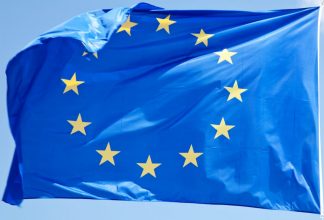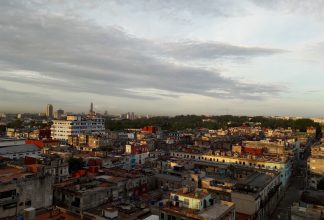The EU-Cuba Agreement: Foreign Investment
Letter #23 by Maydolis González Blanco.
In July 2019, Civil Rights Defenders invited Cuban human rights defenders and civil society organisations to contribute with texts on how the European Union should work towards Cuba. This letter is written by Maydolis González Blanco.
The EU-Cuba Agreement: Foreign Investment
Within the main chapters of the PDCA, I wish to emphasise the dialogue on Human Rights and foreign investment. Considering that the EU’s objectives should be geared toward reviewing those agreements, there should be an opportunity to establish a free trade zone, covering the protection of investments, as well as the requirements, control, and regulation of negotiations by the Union’s Member States. There must also be an emphasis on defending and safeguarding human rights and acknowledging independent civil society.
We are advocating for the socioeconomic development of a country in which the non-state sector is an essential one but yet does not enjoy privileges or benefits and lacks the appropriate infrastructure to maintain and sustain business, all of which promotes corruption. Cuban entrepreneurs have shown that they have the necessary skills to foster the country’s socioeconomic development, and that they are important agents for social transformation.
The political dialogue should be geared towards being able to lay the foundations with the Cuban government for the acknowledgement of independent civil society and respect for the rights of freedom of association, freedom of expression, non-state workers’, and the possibility of electing and being elected, freely without impositions.
The institutions belonging to the European Union and its Member States could cooperate with Cuban civil society, which openly promotes democratisation and respect for human rights, demanding from the Cuban government that these organisations be represented in the dialogues, particularly the dialogues on human rights.
The Cuban government must answer for all the human rights violations and answer why there are cases in Cuba involving professionals who are subjected to defamation campaigns within society, and barred from receiving any social benefits whatsoever, just for belonging to civil society organisations or simply for advocating for human rights.
The Cuban government must answer why human rights defenders in Cuba are treated like people who threat the life and safety of the people.
The Cuban government must answer to why human rights activists are threatened, pressured, and repressed, using their family members and closest friends as targets.
The Cuban government must answer for so many things that it is not answering for, and it lies when it says that human rights are respected in Cuba.
The Cuban government must acknowledge the existence of civil society organisations that do not respond to the interests of the Communist Party, and which seek the development and wellbeing of Cuban society; organisations that worry that Cuban youth, today, think only of emigrating, and of seeking initiatives for their social inclusion, showing them the path to engagement so that they can improve not only their own economic status but also that of their neighbour, and how together we can develop their community and help others engage. Even so, these organisations are viewed as threats to the Cuban people.
Independent civil society organisations do not have the opportunity to compete for international funding because they have no legal status in Cuba. We need support from the European Union and its Member States so that we can have a space for networking with international society, where we can showcase competent work for socioeconomic development, investment opportunities, and so we can find those alternatives that we need now.
We ask the European governments that have not yet ratified the agreement to refrain from doing so until the Cuban government has responded to the concerns posed by independent civil society in Cuba and until human rights issues are addressed with the utmost transparency.
Maydolis González Blanco, DEMOCUBA
About Maydolis González Blanco
Maydolis González is the chief director of the Cuban Democratic Institute for Development (DEMOCUBA), an independent civil society organisation whose mission is to improve quality of life through the development of participative projects for social transformation in Cuba. Its purpose is to empower leaders and civil society organisations to promote democracy, defend human rights, and sustainable development.

